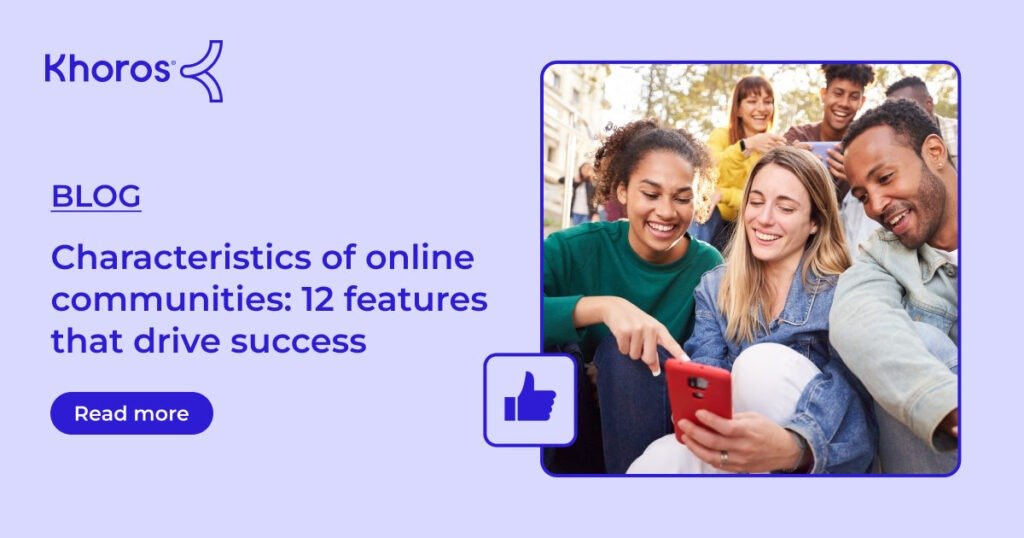
Strive to create content and conversations that are both engaging and valuable for community members; content that resonates deeply with them or supports an existing position they hold or challenges an opposing one is ideal.
Online communities are an effective strategy that can help brands achieve a variety of their business goals, such as increasing product sales, crowdsourcing innovations or improving support – this strategy delivers value both B2C and B2B brands alike.
1. Share Your Knowledge
Online communities offer an excellent venue for sharing knowledge and experiences. Users can connect with like-minded individuals while brands use these platforms as a promotional channel for their products or services.
Understanding your target audience’s needs and desires is the cornerstone of creating engaging online community content. A buyer persona is an effective way to identify topics that provide value to this specific group of readers.
Encourage community members to share their expertise by asking questions and posting answers in discussion threads. For instance, if your company offers online courses or membership programs, an “ask the instructor” session allows users to pose queries regarding certain topics.
An Ask Me Anything (AMA) event is another fantastic way to generate content. This community engagement activity gives members a platform where they can ask any question they want of an industry expert in real-time and receive answers. An AMA can promote your product while building trust among your customer base.
2. Share Your Passion
People join online communities to expand their knowledge and connect with those who share similar passions, creating an overall sense of belonging among community members while building trust, loyalty, and brand advocacy for businesses that offer them.
Establishing and nurturing a community are both key components of business. To sustain engagement and generate content that resonates with their target demographic, brands need to understand what the community requires from them in terms of engagement and support.
One way is by listening and asking pertinent questions of members, as well as encouraging engagement through discussions. Another approach would be promoting content that is both educational and relevant to your community.
Finally, it is equally essential to recognize and reward community members for their participation. A simple gesture such as sending personalized welcome messages when new members join can go a long way to making them feel appreciated and show that you care about building engagement among members – which should lead to higher retention rates in your community.
3. Ask Questions
Content that addresses users’ queries can help your community engage and build trust by showing that you care about meeting their needs and creating connections between audiences and businesses.
Online communities are also an effective way to solicit feedback from your audience or gain their input regarding new products or ideas you are exploring, which will allow you to hone in on how best to expand and develop your business moving forward. By consulting the community’s opinions on proposed projects or initiatives, this information can help your company make smarter business decisions moving forward.
Engaging your community by hosting events such as an “AMA (ask me anything) session” or Company Corner can also be an excellent way to foster engagement and create an enjoyable, engaging experience that keeps them coming back for more.
An online community is an effective way to engage your target audience, drive product sales and decrease research costs while simultaneously increasing return on investment (ROI). But to ensure its success and become an asset to your business, creating engaging content must also be done properly so that it flourishes successfully.
4. Share Your Insights
Experience shows that when community members feel cared for by brands, their experiences improve dramatically. One effective way of creating this sense of connection is through community engagement activities like starting new topics or encouraging participation on forums.
Community engagement strategies must take into account not only member priorities but also how different members prefer to communicate and exchange ideas with each other. Thus, any communications strategy implemented must reflect the language, tone and social norms within a community.
Marketing teams could share case studies of customer or member success stories to give members something they can relate to and build upon, while HR departments could host a Company Corner thread where experts from different departments share career advice with members.
Companies can leverage an online community for maximum benefits, cultivating loyalty and improving retention rates. To get the most from this opportunity, brands should carefully consider their objectives before selecting an ideal platform that meets those needs. Regular monitoring of engagement metrics and optimizing based on insights to provide value to members will create successful communities that support business goals.
5. Share Your Experiences
An online community can be an effective tool for businesses looking to strengthen relationships with their audience and develop deeper bonds through content marketing. When combined, community engagement can lead to brand loyalty and expansion of your business.
As sharing experiences and knowledge in an online community can help build trust with members, it can also build your reputation among them. For instance, if your company sells gardening supplies, joining forums or social media groups that discuss gardening topics could help establish credibility with members as you demonstrate expertise by answering questions and offering valuable advice.
Your online community is also an effective platform for sharing customer or member case studies. For example, hosting an AMA (ask me anything) session where employees answer member queries will not only demonstrate your appreciation of them but will foster an environment in which people feel welcome within your community – like Buffer does with its Company Corner series which helps build and strengthen over time.

